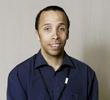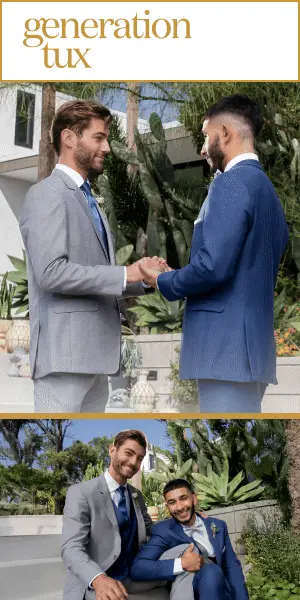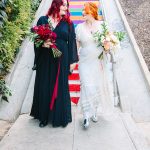 Conspiracy of Silence: Being Gay in the Black Community
Conspiracy of Silence: Being Gay in the Black Community
In a culture that thrives on religion, being gay is viewed as taboo for many African Americans, even though the two communities share a common marital rights bond.
By Jason Carson Wilson
Civil rights are for everyone.
The Rev. Delman Coates of Clinton, Md., put that belief into action. Coates, Mount Ennon Baptist Church’s senior pastor, joined a small group of other African-American clergy supporting marriage equality, and even spoke alongside Maryland Gov. Martin O’Malley during a recent hearing at the state Capitol. Coates credited his gay, HIV-positive cousin for inspiring his commitment to civil rights of gay and lesbian Marylanders. Coates spoke with him, after 20 years of quiet support, more than two weeks ago.
“I apologized for participating in this conspiracy of silence,” Coates said.
That conspiracy of silence has survived and thrived in the black community for generations. What fuels homophobia and self-hatred? Religion. And, according to the Pew Forum on Religion and Public Life, African-Americans are more religious.
Per the research, African-Americans are the most likely to report a formal religious affiliation, compared to other racial and ethnic groups, with a full 87 percent describing themselves as belonging to one religious group or another.
Faith-based silence mingled with denial continues, prompting black men to perpetuate the “down low” phenomenon. The harsh reality of AIDS pushed many black men out of the closet in the early 1980s, including a group in the city of Brotherly Love.
Gay activist Tyrone Smith, 70, reminisced about courageous black gay men in Philadelphia in a YouTube video, recalling Unity Inc., the city’s first organization devoted to HIV/AIDS among African-American men, and its founding members.
“All of these young men made a contribution. They all made a great contribution by giving their lives. Out of that forged what we have now,” Smith said. “People are in rooms where differences are being made, openly affirming their gayness. Prior to this epidemic, that was not happening.”
Today, Coates is in their ranks—openly affirming gay and lesbians’ right to marry. However, he holds his views on homosexuality close to the vest. Sharing them, he believes, muddies the waters.
“It is not a question of private belief,” Coates said, “but whether all citizens of this state have the same rights.”
A black minister has become a straight ally. If that isn’t heroic, this writer is unsure what is. Coates weathers attacks on his religiosity, motives and character. Emmett C. Burns Jr., D-Baltimore County, an anti-gay black lawmaker opposed to same-sex marriage, pondered whether O’Malley rewarded Coates for his marriage equality support.
With that said, comparisons of the black and GLBT experience breeds contempt. Reaction to CNN pundit Roland Martin’s homophobic tweet prompted a terse tweet from his wife, the Rev. Jacqueline Martin Hood.
“@glaad uses our history to gain their equality & then stabs the point man in the back. Don’t ask us for nothing else!” Martin Hood tweeted.
Calling the supportive husband of an “ex-gay” therapist a “point man” on gay rights is a stretch. An excerpt from a 2006 column displays his level of support.
“My wife, an ordained Baptist minister for 20 years, has counseled many men and women to walk away from the gay lifestyle, and to live a chaste life. … For her, the obligation is to her calling as a minister of the Word, rather than bowing to societal pressures,” an excerpt reads, according to Michelangelo Signorile.
As a gay and black writer, I’m cognizant of my black history. The black and LGBT communities, respectively, have definitely trod different paths. Most LGBT Americans weren’t rounded up, shackled, shipped and enslaved.
Some people could tally the African-Americans beaten, lynched and murdered and compare it to the LGBT citizens attacked, tortured, killed or driven to suicide. Go ahead. However, neither group has deserved the animosity or disrespect.
Given our common bond, the African-American community’s homophobic tendencies baffle me. It wasn’t that long ago—before 1967, to be exact—when blacks couldn’t love anyone they wanted. Remember Richard and Mildred Loving? Richard was white. Mildred was black.
The Lovings’ faced 25 years in prison for violating Virginia’s interracial marriage ban. Their successful fight resulted in the historic Loving v. Virginia U.S. Supreme Court decision. Coates apparently realizes gay and lesbians deserve the same rights once denied to black Americans.
Unfortunately, some in the black community are too blinded by religion to acknowledge that reality.
Disclaimer: The views and opinions expressed within the confines of Viewpoints, our opinion-based forum, are those of the author and do not necessarily reflect the views of Equally Wed, Palladino Publishing, LLC, its affiliates, or its employees.
MOST VIEWED STORIES
- The Rise of Weddings With Long-Lasting Investments: Benefits Beyond The Big Day
- How to have a green wedding that Mother Earth would attend
- Simplify wedding communication with digital engagement announcements and thank you cards
- A Spiritual and Earthy Elopement at Lassen Volcanic National Park
- Food Trucks, Craft Booze and Cultural Fusions: How New England Weddings Are Changing the Game


























